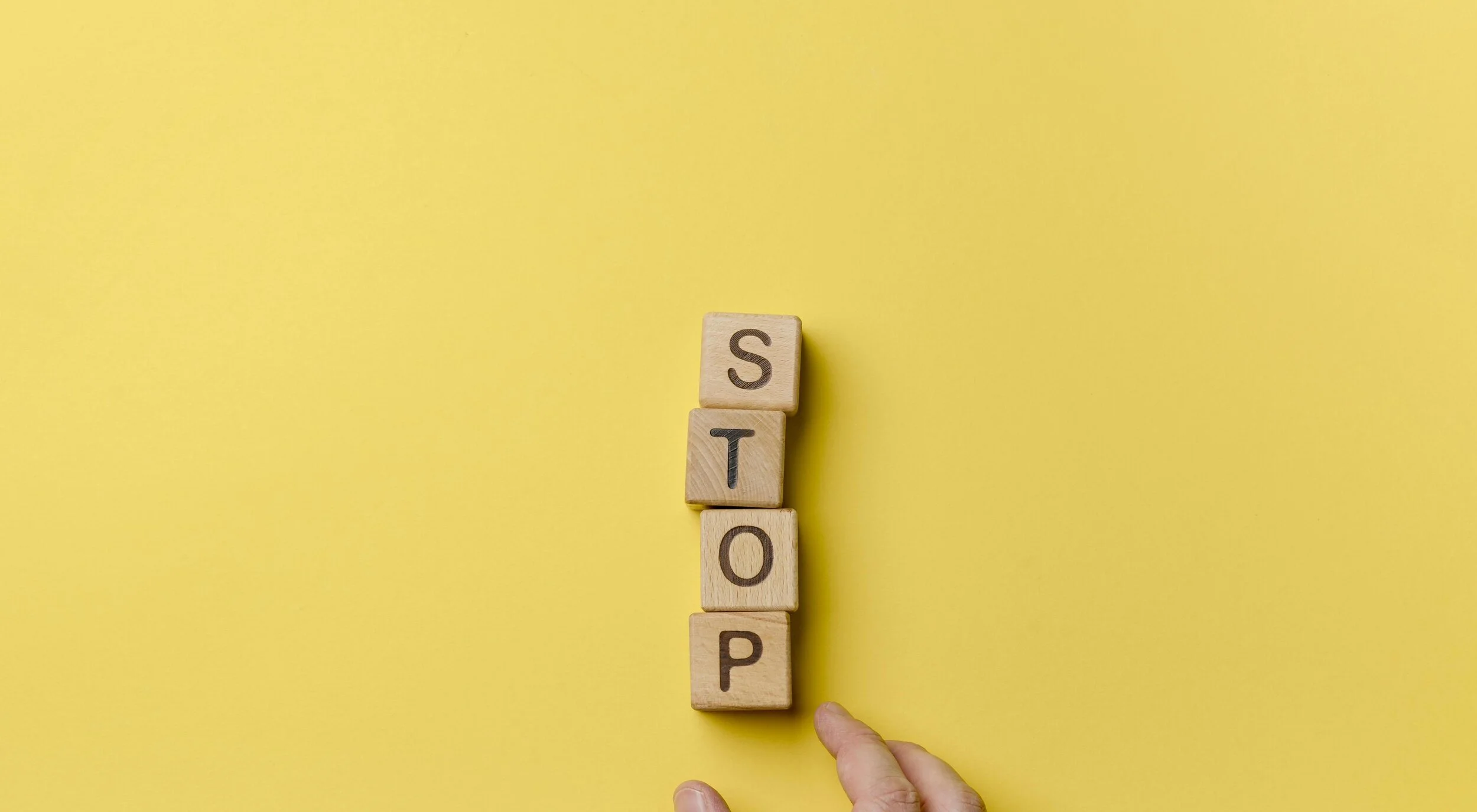

Womxn// 15 Things I Would Tell My 15-Year-Old Self.
By Chloe De Lullington
There was a tweet doing the rounds recently, asking “what did you look like ten years ago?” This elicited all the usual self-deprecating replies featuring what we would now call “questionable fashion choices” and kids throwing gang signs into cheap webcams, and as I scrolled idly through, it dawned on me that ten years ago I was 15 years old.
It sounds silly, but the jump from then to now had more or less crept up on me, and although some aspects of my teenager-hood are fuzzy round the edges (probably self-preservation, protecting me from the memories of the more bizarre, embarrassing stuff I definitely did) I still remember with stark clarity how it felt to be 15. I couldn’t do it all again – today’s teenagers are simultaneously tougher and more vulnerable than teens before them, dreaming bigger but with obstacles stacked against them from an even younger age – but at the time, it sometimes felt like I couldn’t do it then, either.

Womxn// TW: A Week To Be A Woman.
By Jessica Whitham
This Monday, the 8th March, was International Women's Day. At the beginning of the week, I believed myself to be someone who did not prioritise celebrating the day in a particular way. I think women are extraordinary, but my feelings were akin to 'everyday is international womxn's day.' I continually try to champion and educate myself on the issues anyone who identifies as a woman faces.
Today I feel differently. Although I take issue with the commercialisation around brands using the history of women to promote products, I have never felt more that we need to celebrate ourselves.

Womxn// TW: Dear Sarah.
By Bethany Barrett
I’m sorry. I’m sorry that society failed you. I’m sorry that we failed you.
You did everything you were ‘meant’ to. You wore bright clothing, you stuck to well-lit paths, you rang someone whilst walking. But it wasn’t enough. Worst of all, the man arrested and charged for your kidnap and murder was someone who we are taught to respect, a man who should have been protecting you. What more could you have done?

Womxn// Global Issues in Women’s Health.
By Hannah Marie ZT
There are many issues that affect women globally that need more discourse and discussion in order to gain momentum to find solutions. Many of those are also impacted by other wider problems such as a lack of research on women’s issues, lack of support for women at risk or in danger, and socio-economic conditions such as poverty. Although there are many that require global attention, there are 5 key areas that particularly require attention: breast cancer, abortion and contraception, pregnancy and childbirth, domestic and sexual violence, and mental health.

Womxn// The Gender Data Gap: A Piece Inspired by “Invisible Women” by Caroline Criado Perez.
By Bethany Barrett
As soon as I picked up “Invisible Women” I knew I would love it. An avid reader, I usually shy away from non-fiction books - especially more philosophical or theory-based ones - through fear of finding them too heavy, both in style and content. When I get the time to read for pleasure, I read to escape from the world around me, not to be confronted by attempts to understand it and all the issues it faces.
But “Invisible Women” is not like that. Designed to be accessible yet persuasive, Perez centres her points around a single theme: the gender data gap.
Womxn// On Monday…
By Annabelle Johnston
On Monday we celebrated international women’s day. Yesterday we learnt that a police man has been arrested in connection with Sarah Everard’s disappearance and that a body had been found in a wooded area.
On Monday we celebrated women and all of our accomplishments and capabilities and yesterday we realised that Sarah could have been any one of us. She took the longer route home because it was better lit and she rang her boyfriend as she walked, as most of us do while walking alone at night.

Womxn// Our Femininity Is Our Power!
By Leila Akinyi
When we believe in a cause, we fight for it with conviction and stance. That's how we have managed to ensure that Women's rights, Children's rights, Maternity health rights are upheld and valued. In addition, the fight against child and sex abuse is led by women. We are game-changers!
Let's talk about how we make the economy move because we are the highest consumers of products and services globally. From small businesses to corporates, women form the largest customer/client base.

Womxn// Watch Our Words!: Thoughts on how language is made by and for the benefit of the patriarchy.
By Vanshika Thakur
Throughout human history, the ones in power have always exercised control by manipulating the language. The words that we use are ridden with biases – patriarchal, misogynist biases.
Language is a potent tool of social control. Everything that is our reality can be analysed in this context…

Womxn// Looking Beyond Imposter Syndrome: What’s missing from our conversations about women at work.
By Megan Warren-Lister
Corporate culture often sits in opposition to the social norms that dictate how women ‘should’ behave. Respectively, succeeding in these environments seemingly requires a transgression of the gender norms that govern life outside the boardroom; but this leaves women in a problematic liminal space. Whereas gender norms might suggest that women should be smiling people pleasers, whimsy and modesty are not the attributes typically associated with corporate success. Yet curiously, adopting conventionally ‘masculine’ traits is not the apparent solution either. We need cultural change (particularly within the corporate sphere) to address this predicament, and to palliate so-called imposter syndrome.

Womxn// How to deal with harassment when you are working in education.
By Hannah Marie ZT
Harassment is a term that covers a wide range of offensive behaviours that demean, humiliate, embarrass, or violate a person. It can take the form of spoken or written words, images and graffiti, physical gestures or contact, facial expressions, and more. A particular issue for women in society is harassment based on their sex. This is an issue that has become prominent for women who are working in education – they often face harassment not only from other male colleagues, but also from the students who they are teaching.

Womxn// The Tampon Tax: A Pro-Brexit Fallacy?
By Bethany Barrett
Periods. A word that can conjure up a thousand connotations: everything from the bodily process which gives rise to life, to the symbolic metronome by which so many women’s lives are regulated. They can be messy, they can be painful, they can be a relief. You know what they are not? A luxury. Yet for years, they have been taxed as such. As of 1st January 2021, however, this is no longer the case in the UK, with VAT no longer being charged on the sale of sanitary products. Surely this is a cause for celebration? Well, in short, yes. But before we all go praising Rishi Sunak unreservedly for being the taxman who cut the Tampon Tax, it is worth noting the wider background behind these jubilant headlines.

Womxn// Women and Power: A Commentary.
By Hannah Marie ZT
Mary Beard’s Women & Power: A Manifesto is a must read. The connections she draws between ancient civilisations and the present day expose how entrenched sexism and misogyny are in society, and how the same images and motifs are carried through for thousands of years. From Queen Elizabeth I to Theresa May, and Medusa to Hilary Clinton, she explores the explicit connections between mythology and present day, outlining how women have been struggling to break into the male-orientated system of power since the origins of Western society. She demonstrates more clearly than ever that it is not women that should need to change to fit the system of power moulded around men – it is the system that must be remoulded.

Womxn// Can We Please Stop Using the Phrase ‘Strong, Independent Woman’ as a Compliment?
By Esther Huntington-Whiteley
If someone were to call you, or any woman you know, ‘strong and independent’, you would likely consider it a compliment. But what does it actually mean to be a ‘strong, independent woman’ in our current day and age? Is it possible that this rhetoric is actually quite damaging in the face of the patriarchal norms and misogynistic expectations imposed on females in our society?
Strength and independence are two states of existence which most people in the modern world are striving towards, regardless of their gender. Once we start advocating for the idea that only some women can achieve this status, and even then only if they are continually and persistently practicing a certain lifestyle, we create a further barrier between what men are automatically assumed to be and what woman must work to become.

Womxn// X Marks the Spot: Language, Inclusivity and Breaking Binaries.
By Chloe De Lullington
When it comes to inclusive language, I’m all for it. I like to think I’m a fairly good feminist, but we all have our blind spots – so when the good folk at HHS asked me to write a piece responding to the word ‘womxn’ and its usage and implications, I was compelled to confront one of mine. The fact is, as a cis, able-bodied, white lass pretty much 100% at home in her femininity, I’ve been enormously privileged to be able to breeze through life without engaging with the Discourse-with-a-capital-D that inevitably surrounds the word womxn. No one’s tried to tell me I’m not a woman, and I’ve never felt excluded based on any gatekeeping notions of womanhood.

Womxn// ‘Womxn’: A symbol of different narratives.
By Sasha Dhabalia
When I first discovered the word ‘womxn’, I thought there had been an unfortunate typo. Eventually though, this word cropped up fairly frequently, especially in places that I knew would rigorously check their spelling and grammar. It turns out that ‘womxn’ was in fact intentional. Right… what’s so wrong with the word ‘woman’ then? That’s the first thing that came to my mind. I am wholeheartedly up for re-educating myself when it comes to specific words or phrases that hold some pretty awful connotations, but I couldn’t think about why the word ‘woman’ was such an issue? With some more google searches, I still don’t think it is. However, ‘womxn’ does lend some meaty food for thought and I do applaud certain aspects of why this word now circulates on the internet.

Womxn// My Thoughts on ‘Womxn’, Intersectionality and De-Gendering Endometriosis.
By Sophia Kleanthous
Language, and the way we understand language, is having an important moment in history. For the first time it seems some branches of feminism are embracing this and moving towards becoming more intersectional. The term ‘female’ is slowly being dropped in circles that understand its harm to non-binary and trans people, and rhetoric on periods is shifting from being focused on women to any person with a uterus. As a result, the term womxn is starting to be used to ensure dialogue and thinking is fully intersectional. I will be using the term womxn in the rest of this article.

Womxn// ‘Woman’ or ‘Womxn’: The value of a healthy debate.
By Bethany Barrett
The first time my family read one of my pieces for HHS, they all pointed out the same thing - that I had consistently made a typo, and written ‘womxn’ instead of ‘women’. They were bemused as to why my spell checker hadn’t picked this up. I explained to them that I had purposely done this, for two reasons: using the term ‘womxn’ marks a movement away from the inherent patriarchal dimension of the term ‘women’ and is also seen as a more inclusive term, more markedly encompassing all those who identify as female. But there are two issues with this. Firstly, does a term really change anything? If it does, is ‘womxn’ the right term to start using?

Womxn// The only ‘x’ you wont regret.
By Mysti Ommer
‘Womxn’ was created to include non-binary and transgender women, working to eliminate transphobia and gender dysphoria by not being restrictive. As a non-binary person who was assigned female at birth, I have found the use beneficial partly for those reasons. The struggles encountered by cisgender womxn are still things people like me must face; presenting as female is a seemingly never-ending story of men ignoring and endangering us. It is heartbreaking that every single womxn I know has stories of feeling powerless and suffering at the hands of a misogynistic man.

Womxn// Yes, I am a girl.
By Lauren Barclay
Growing up over the years, I, like many other girls, have had the comment ‘but you’re just a girl’ thrown at me in all sorts of scenarios:
Playing a sport, climbing a tree, lifting something heavy… You get the idea...
The term ‘girl’ has become a derogatory term used to describe a person when they do something that isn't stereotypically associated with woman-ness. For example, in this instance, being a ‘girl’ makes playing football, getting muddy, or liking science surprising and unusual activities.

Womxn// The Law on Upskirting: Where Are We Now?
By Bethany Barrett
Upskirting, or the act of taking photos or videos underneath a person’s clothing without their knowledge or consent, was made explicitly illegal in England and Wales through the Voyeurism (Offences) Act 2019. The struggle that campaigners, led by Gina Martin, a victim of upskirting herself, went through to make it a specific crime in its own right was widely publicised.
But what happened next?
After the ink on the new law dried.
After the TV crews left.
After the campaigners shifted focus to fresh injustices.
